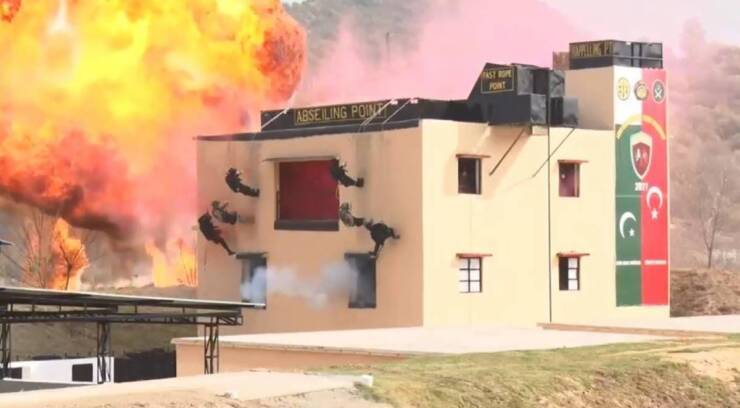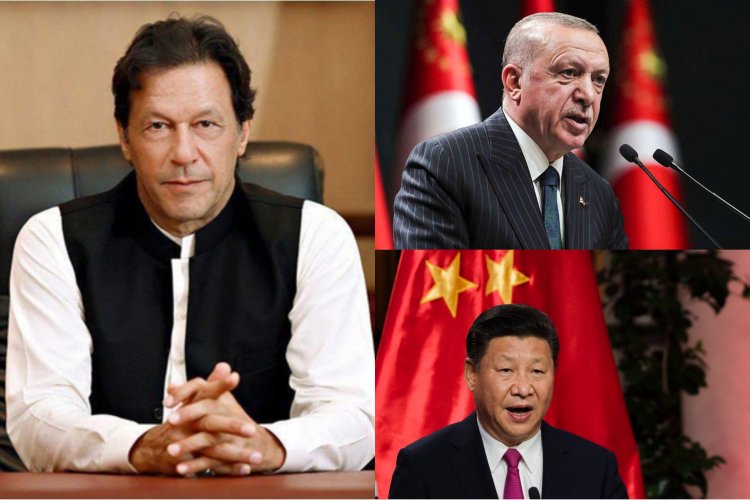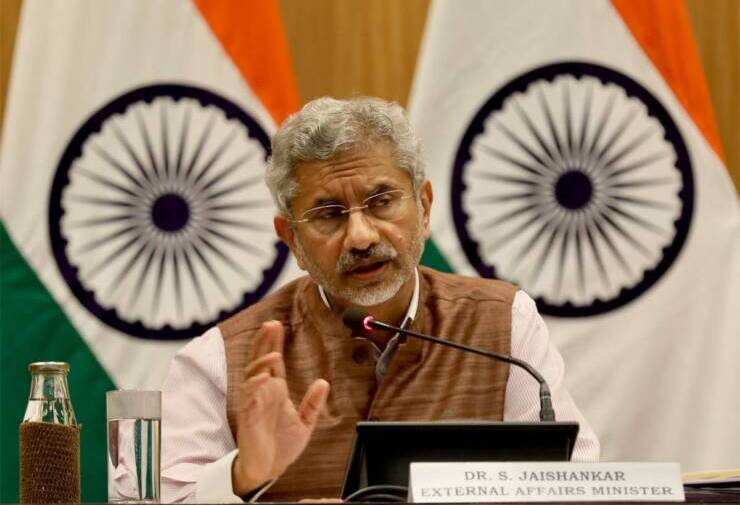
By far, the 21st century has been an age of black swans – From 9/11, the rise of China, the saga of Brexit, the election of Donald Trump, American nationalism, the Coronavirus pandemic, and what not. Low probability, high-intensity occurrences have realigned the world order. It is not yet over, we’ve just entered the third decade, and of the black swans still to arrive, the Coronavirus is certainly not the last to materialise in China.
The world has changed irreversibly with Asia becoming the epicentre of the tectonic shifts in the new geopolitical order. The global sheriff USA, which had become a reluctant sheriff under Obama, became a retired sheriff under Trump. This void has enabled China to find a happy hunting ground in the region. It is now witnessing a China-backed axis consisting of states like Pakistan and Turkey.
Having pledged about $62 billion and dozens of energy and infrastructure projects, the CPEC (China-Pakistan Economic Corridor) is one of the largest commercial initiatives in South Asia that also has its geostrategic implications. It is the testimony of the relationship between the ‘Iron brothers’—Pakistan and China – a phrase that dates back to the Cold War when they teamed up against India.
After being dumped by the western plank for nefarious manoeuvres, Turkey tilted its orientation towards the Eurasian geopolitics. Ankara has found a big brother in China who shares the same fate of turning ropes. Both Pakistan and Turkey sit at the heart of Beijing’s imperial agendas, particularly in its grand project for a new silk road. Snubbed by the US, members of the axis fell easily into China’s lap and thus this unholy trinity bears serious repercussions for New Delhi diplomatically, economically as well as militarily.

Pakistan-Turkey Bonhomie
With the onset of Erdogan’s regime, Turkey witnessed its winds blowing towards South Asia. Ankara’s desire to expand its influence amongst Southeast Asian Muslims came against the backdrop of president Erdogan’s continuing pitch to challenge Saudi Arabia’s dominance in the Islamic world and offering a reshaped conservative Turkey with the Ottoman tradition as the model for other Islamic countries.
India, with the world’s second-largest population of Muslims, has been on the front page of Erdogan’s playbook. Ankara cannot claim Muslim leadership in isolation with such a major chunk. Officials believe that the Turkish government has funded hard-line separatists in Kashmir, recruiting fundamentalists to radicalise people through religious seminars in India.
Ankara’s resilient efforts to re-establish the Ottoman glory is a concern for Indian Muslims. Turkey and India established their diplomatic ties in 1950. The trade between the two amounted to $7.7 billion in 2019 while it was around $1.09 billion with Pakistan. Despite promising potentials in commercial ties, Turkey’s relations with India were incessantly disfigured by critical political issues. Or rather I should say the ‘Pakistan factor’ has prevented India from developing strong and sustainable ties with Turkey ever since the Cold War era.
The Pakistan-Turkey bonhomie had its roots in the Cold War era when the two were a part of the western bloc. To quote C. Raja Mohan, “Ankara’s uncritical endorsement of Pakistan has been constant irrespective of who dominated Ankara — the secular army or the current Islamist leadership.” President Erdogan is keen to retain his conservative voter base back home intact. With its ambitions to become the leader of the Muslim world, Turkey has found an ally in Pakistan. It is playing the religious card with Pakistan to acquire nuclear weapons to fulfil its desire to become the pariah state of the Muslim world. This fraternity between the two Sunni brothers is creating geopolitical ripple effects in the Himalayas, the Arabian Peninsula, and the South Caucasus.
Turkey has sensed Pakistan’s growing disparity with the Arab world and exploited this opportunity to involve Pakistan in its plank. It considers Pakistan, which was economically dependent on Saudi Arabia and other Gulf countries, as a battle stage in the ongoing tussle for primacy within the Muslim world. When all the other chips are down, Pakistan’s brotherly relations with Turkey could only give Islamabad symbolic and emotive strength.

Islamabad has been on the global money-laundering watchdog’s radar since June 2018. China, Turkey, and Malaysia supported Islamabad to escape its placement on the blacklist. Turkey continues to back Pakistan over Kashmir to the hilt. Instability and common enemies of the two has given a further boost to their relationship. The two revisionist partners are located 6,000 km apart, forming the opposite poles of China’s BRI (Belt and Road Initiative). However, together they form a formidable axis catering to economic cooperation, military supplies, soft power projection, conflict resolution diplomacy, and Islamic solidarity politics.
Brothers-In-Arms
For the last few decades, defence ties have been the main area of alliance between Islamabad and Ankara. It also serves the larger policy goal of Erdogan’s AKP (Justice and Development Party) to expand its defence industrial base by boosting arms sales to $25 billion by 2023. Pakistan’s unhealthy obsession with terrorism means economic benefits for Turkey. In the past, Pakistan has provided military assistance to Ankara, but now the boot is on the other foot.
According to Sweden-based global security think tank SIPRI, Turkish arms transfers to Pakistan totalled $112 million in 2019. These are hard numbers, destined to grow, as Turkey fulfils recent orders from Pakistan exceeding $3 billion, including the purchase of four MILGEM Ada-class corvettes and 30 T-129 ATAK helicopters. Pakistan and Turkey’s aspirations for military autarchy were born out of bitter experiences of being sanctioned by the West. Continued pressures from the West also drive and complicate Pakistan-Turkey defence cooperation. The T-129 helicopter deal has been in limbo as the US Congress has blocked export licenses to Turkey for its American-British-designed T-804A turboshaft engine. Turkey is now developing a replacement for the T-804A. However, the locally made TS 1400 engine is currently at the prototype stages, years away from service.
As reported by the state-run Anadolu news agency, a three-week joint military exercise, Ataturk-XI 2021, involving Turkish and Pakistani Special Forces, just concluded last week in north-western Pakistan. Earlier last year, at a ceremony for Turkish-built naval vessels including a corvette for the Pakistan navy, president Erdogan talked of tremendous potential for defence-industrial cooperation between the two countries. Indeed, as its domestic arms industry has grown rapidly, so too has the profile of Ankara’s defence deal with Islamabad, quickly shifting from the upgrading of Pakistan’s hardware originally procured from other NATO countries. Over the past two years, Turkey and Pakistan have signed a mega defence pact making Ankara the second-largest defence supplier to Islamabad after Beijing.
While China will remain Pakistan’s main source of imported defence hardware, Turkey provides an alternative to increasingly inaccessible American and French equipment and modestly eases Pakistan’s dependence on Beijing. The T-129s are intended to replace Pakistan’s aging fleet of America’s AH1F Cobras. Pakistan also buys Turkish armaments for its JF-17 fighter jets, jointly manufactured with China. In fact, Pakistan-Turkey defence relations go beyond purchases of Turkish armaments by Pakistan, with Ankara also having procured training aircraft, drone parts, and secret technology from Islamabad.
The Sino-Turkish Conundrum
The Pakistan-Turkey alliance is however constrained by the economic instability of the two and limited prospects of growth in trade in the near term. Declining foreign reserves, falling exports, a weak currency, and growing isolation of Turkey are the result of Erdogan’s growing misadventure. The condition of the Turkish economy is too weak to support its president’s expansionist agenda to build a modern-day Ottoman Empire, but the president keeps cutting cheques that simply do not cash. As Ankara’s ties with its traditional western allies weaken, it is looking for alternative options to strengthen its economy.
Beijing continues to hunt Uighur Muslims and Ankara supports it. The Uighurs are a Turkic ethnic group. They live in Xinjiang, once known as East Turkestan. In 2017, Turkey and China signed a draft Uighur Extradition Treaty that obligated Turkey to deport Uighurs directly to China. China has now announced its ratification with turkey. Although the Turkish parliament has not ratified it yet, president Erdogan had made up his mind long ago. He once labelled China’s treatment of Uighurs ‘a sheer genocide’ but has now changed his tunes. In 2019, he remarked that ‘Uighurs are living happily in Xinjiang’. Turkey is not just looking the other way, but it is now also aiding China in its heinous crimes by helping to deport Uighur dissidents back to China by first transporting them to a third country. When western countries cornered China for its crimes against the Uighurs, Turkey didn’t utter a word. China’s cheque books have bought these silences.
It is business as usual. Erdogan chose China’s money over China’s Muslims. In 2010, China and Turkey signed 8 strategic cooperation pacts, which were estimated to increase annual trade volumes between the two to $100 billion by 2020. In 2019, the Chinese central bank made a $1 billion cash infusion into the Turkish economy, struggling banks in Turkey received bailouts from China during the pandemic. Beijing has also sanctioned a $3.6 billion package for the Turkish energy sector.
Turkey is boosting its value-added exports to China while adding more investments home. The China-Turkey bilateral trade, pegged at $1 billion in 2000, grew to $23 billion in 2018, with Chinese investments of around $2 billion. Beijing is now Ankara’s third-largest trade partner. Because of its strategic location, Turkey fits well into the plan of an Eurasian dream of China and Russia. Turkey seeks to capitalise on its geographic location and serve as a route to Europe. China’s flagship Belt and Road Initiative (BRI) dovetails with Turkey’s Middle Corridor Project that seeks to connect China with Turkey through Central Asia and the Caucasus.

The nuclear nexus
The other emerging black swan that will continue to haunt this decade or so is the ‘nuclear nexus’ between China-Turkey-Pakistan. The strategic behaviour of this unholy nexus is largely determined by a few commonalities. They are all in a hurry to acquire the nuclear wand to boost their bargaining capabilities in the international fora. China is acting as a major patron to the rogue alliance between Pakistan and Turkey for supplying nuclear technologies. This nuclear diplomacy, illicit nuclear proliferation, authoritarianism, promoting radicalism and providing sanctuary to terrorist groups, threatening neighbourhoods, and desire for global domination are the hallmarks of this trinity.
China is a formidable nuclear power. It is modernising its defence forces just to achieve its narrow geopolitical ambitions and grand imperial objectives rooted in its ancient strategic culture of the “Middle Kingdom Complex”. Similarly, Erdogan is banking on Pakistani nuclear and missile technologies to fulfil his geopolitical aspirations. The rapid production and proliferation of nuclear and missile technology by Turkey have been a major concern for democratic powers across the world. It has threatened the peace and tranquillity of countries from the North Atlantic to the Middle-East. It is pertinent to note that for decades, Pakistan has been a kingpin of the nuclear black market, and Turkey is contributing to Pakistan’s business.
The China-Pakistan-Turkey nuclear nexus brings a grimmer security situation for both regional and global security. For all the above-mentioned nefarious intents, this unholy nexus is the one India needs to watch out for. In such a fluid global order, India should beef up its nuclear defence capability to ensure a credible nuclear deterrence against China, Turkey and Pakistan. India must mobilise its goodwill via international institutions like the UN and the International Atomic Energy Agency (IAEA) along with the existing nuclear regulatory regimes to pursue punitive measures to checkmate the illicit proliferations of nuclear arms.
And lastly, to quote India’s External Affairs Minister S. Jaishankar from the fourth Ramnath Goenka Memorial Lecture, “Change is upon us as never before. With the weakening multilateralism, the landscape has changed and so do India’s partners. It’s high time we recognise this change to utilise all the opportunities. As we know change is the only constant, having seen the world move from bipolarity to unipolarity and then to multi-polarity, which again is in the doldrums. Thus, in such a rapidly transforming world, the purposeful pursuit of national interests, however difficult, is the need of the hour. Simultaneously, these changes in strategy must also serve our greater capabilities, ambitions, and responsibilities.”
-The writer is a student of Political Science in the University of Delhi. The views expressed are personal and do not necessarily reflect the views of Raksha Anirveda








